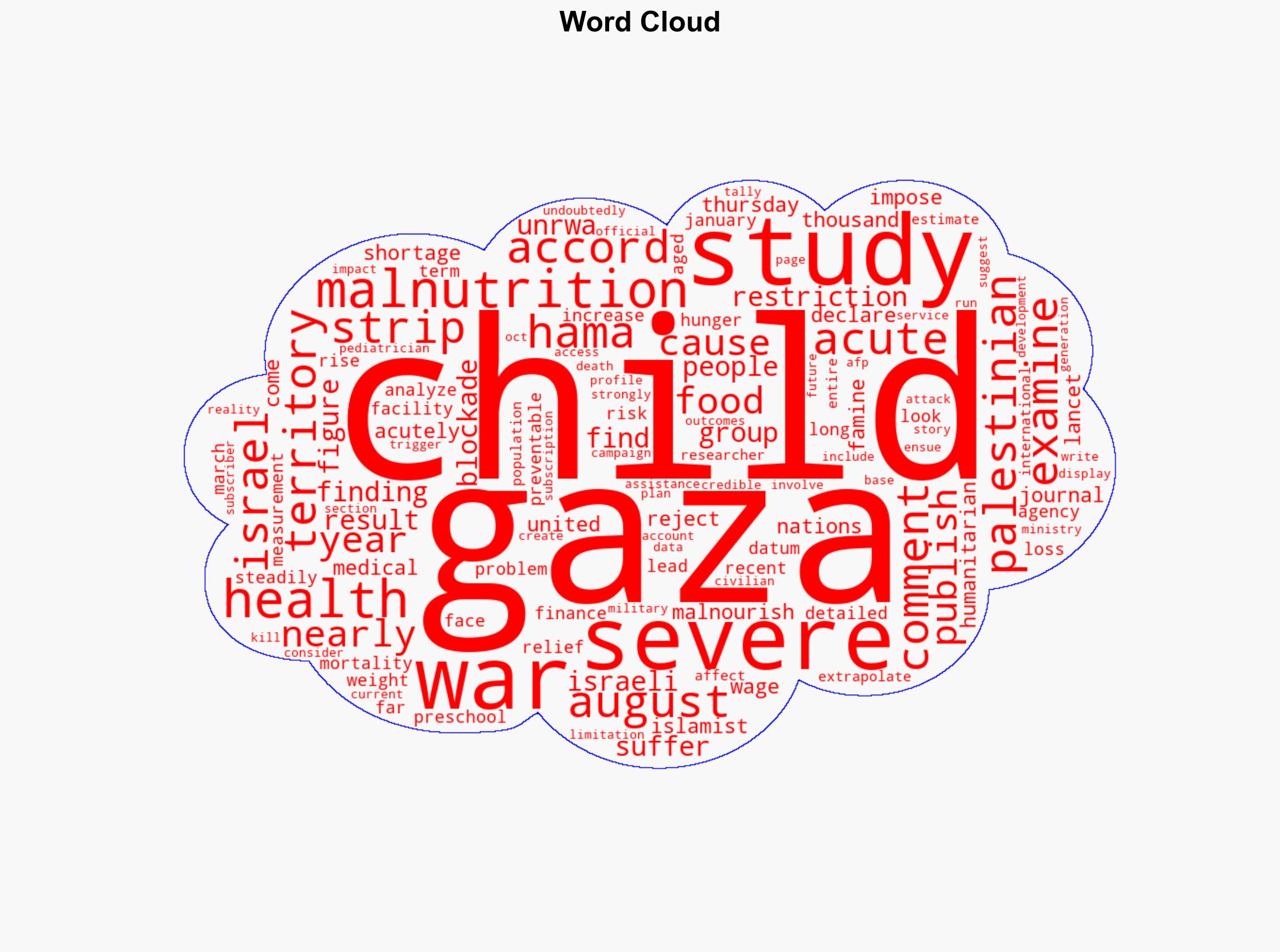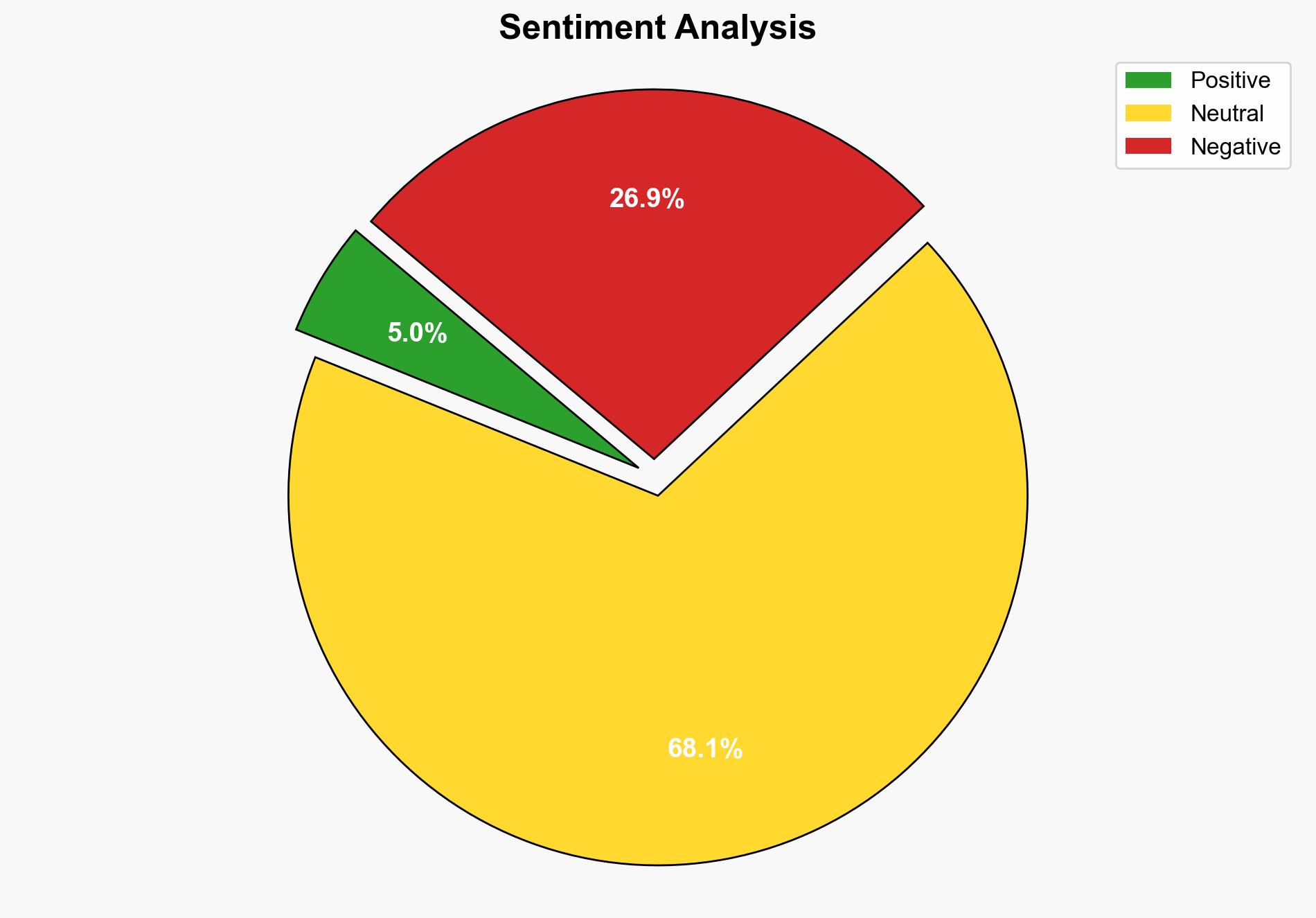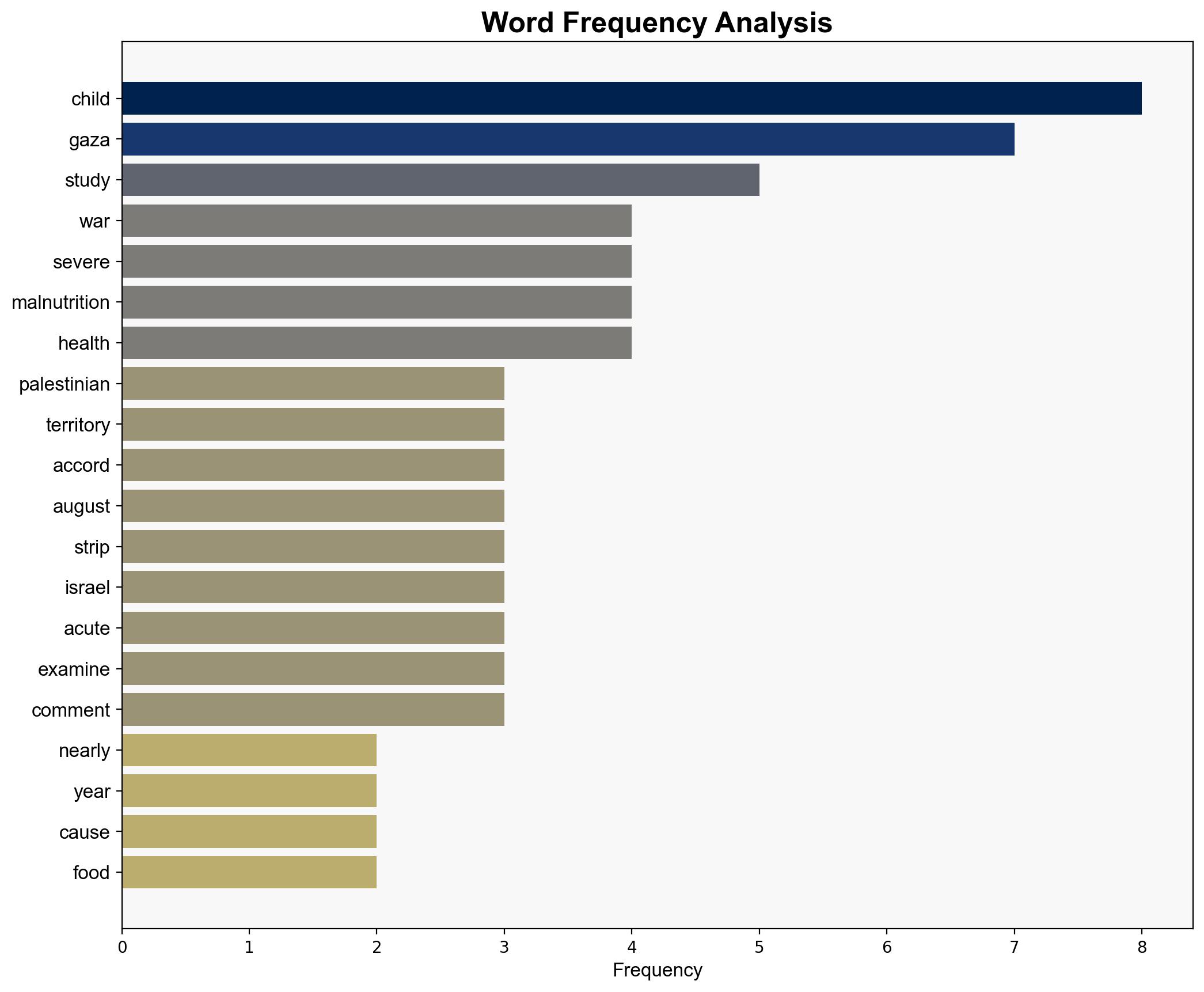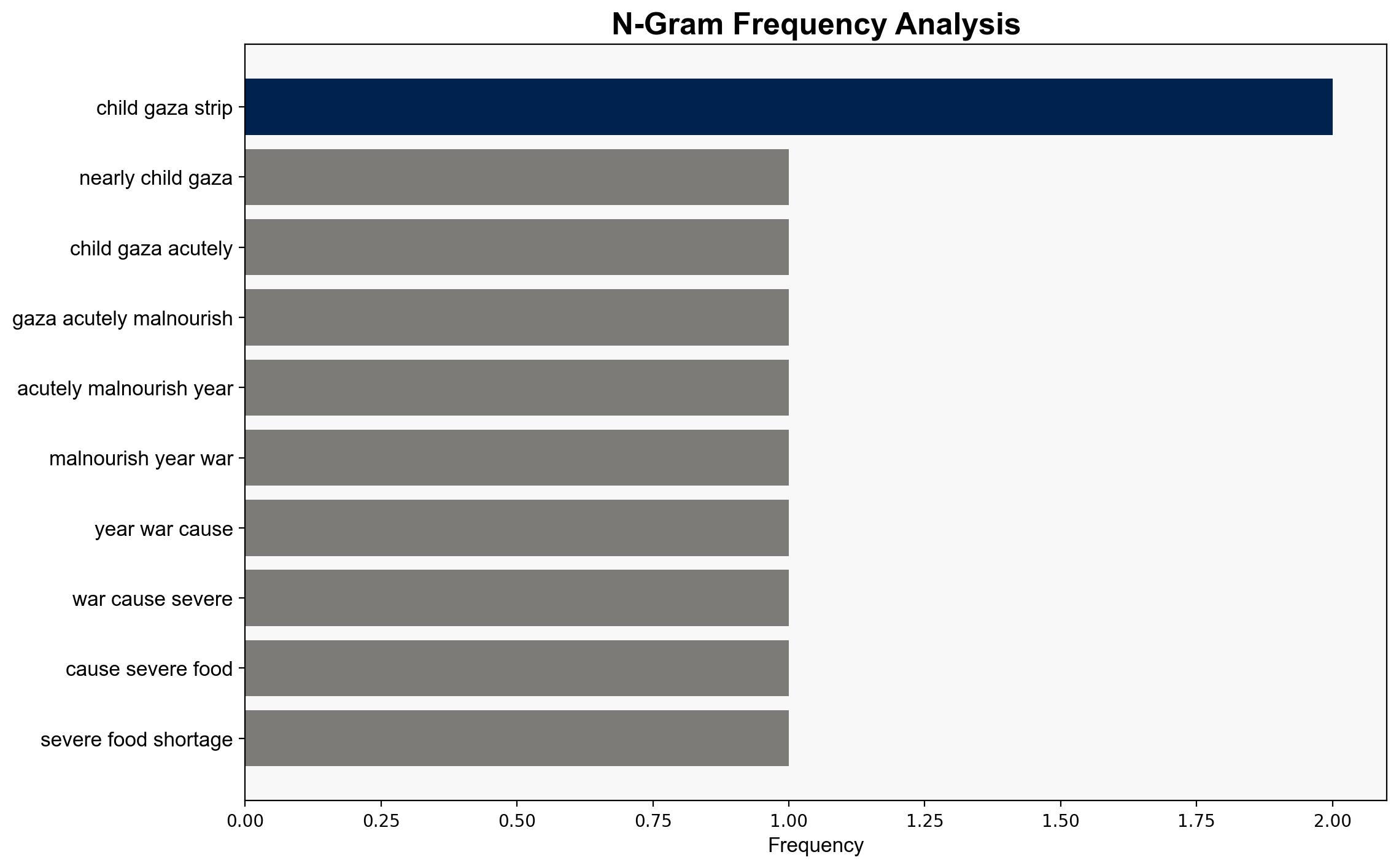Nearly one in six children in Gaza acutely malnourished study shows – The Japan Times
Published on: 2025-10-09
Intelligence Report: Nearly one in six children in Gaza acutely malnourished study shows – The Japan Times
1. BLUF (Bottom Line Up Front)
The most supported hypothesis suggests that the acute malnutrition among children in Gaza is primarily due to the Israeli blockade and ongoing conflict, which severely restricts food and humanitarian aid access. Confidence in this assessment is moderate due to potential data limitations and geopolitical complexities. Recommended action includes advocating for increased humanitarian access and international diplomatic engagement to address the blockade’s humanitarian impact.
2. Competing Hypotheses
1. **Hypothesis A**: The acute malnutrition in Gaza is primarily caused by the Israeli blockade and ongoing conflict, which restricts food supply and humanitarian aid.
2. **Hypothesis B**: The malnutrition is exacerbated by internal governance issues within Gaza, including mismanagement of resources by local authorities, which compounds the effects of external blockades and conflict.
Using the Analysis of Competing Hypotheses (ACH) 2.0, Hypothesis A is better supported by the evidence. The study’s findings, published in The Lancet, highlight the direct correlation between the blockade and malnutrition, while Hypothesis B lacks substantial evidence in the provided data.
3. Key Assumptions and Red Flags
– **Assumptions**: The study assumes that the data collected from UNRWA facilities is representative of the entire child population in Gaza. It also presumes that the blockade is the primary factor affecting food availability.
– **Red Flags**: The reliance on data from children who accessed health services may not account for those unable to reach such facilities, potentially skewing results. The geopolitical context may also influence data interpretation and reporting.
4. Implications and Strategic Risks
The ongoing malnutrition crisis poses significant long-term health risks for the affected population, potentially leading to a generation with compromised health and development. This situation could exacerbate regional instability and fuel further conflict. The humanitarian crisis may also attract international criticism and pressure on Israel, potentially affecting its diplomatic relations.
5. Recommendations and Outlook
- Advocate for increased humanitarian access to Gaza to alleviate the immediate malnutrition crisis.
- Engage in diplomatic efforts to negotiate easing of the blockade while addressing security concerns.
- Scenario Projections:
- **Best Case**: Eased restrictions lead to improved humanitarian conditions and reduced malnutrition rates.
- **Worst Case**: Continued blockade and conflict result in worsening malnutrition and increased mortality.
- **Most Likely**: Incremental improvements in aid access with ongoing challenges due to geopolitical tensions.
6. Key Individuals and Entities
– UNRWA (United Nations Relief and Works Agency)
– The Lancet (Medical Journal)
– AFP (Agence France-Presse)
7. Thematic Tags
national security threats, humanitarian crisis, regional focus, geopolitical tensions





